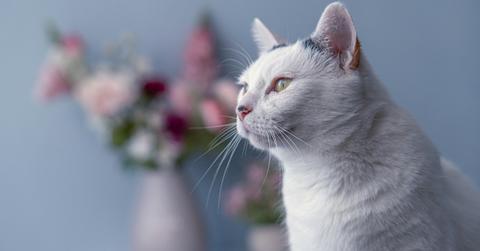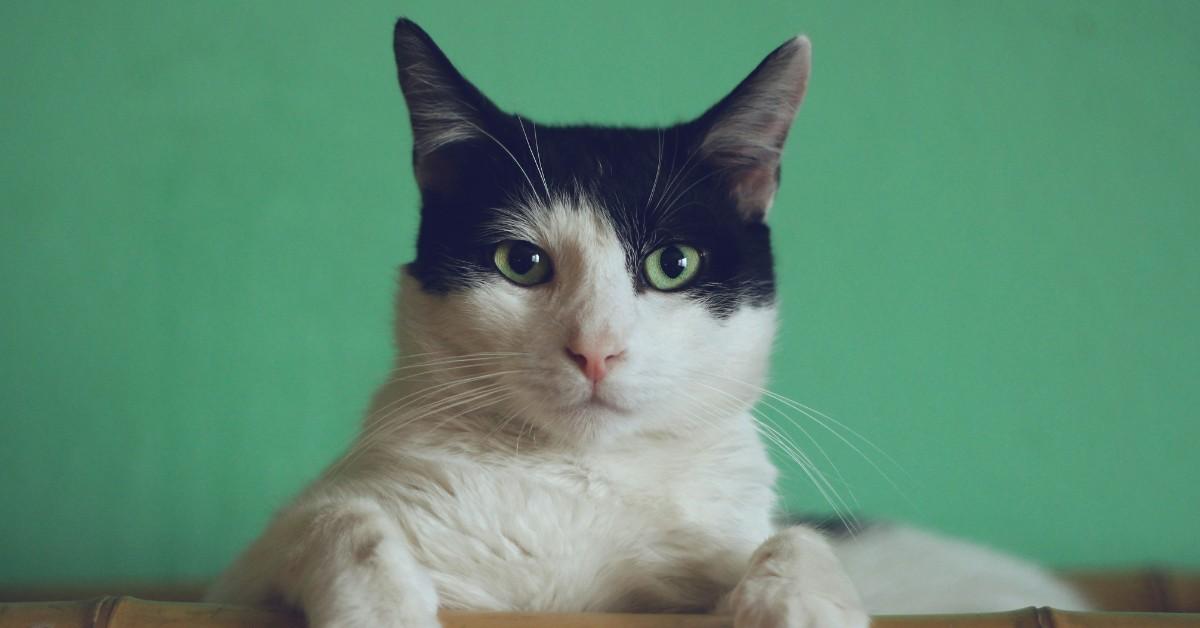Factchecking Whether or Not Lilies Are Toxic to Cats
The fragrant flowers can be dangerous for your furry friends.
Published May 20 2025, 2:42 p.m. ET

Calling all call parents: If you are someone who likes to keep fresh flowers around the house, either cut in a vase or growing in pots, then you'll want to know that there are some types of flora that are not safe to have around animals. And while poinsettias get a lot of attention for their toxicity, there are plenty of other plants that can prove to be just as deadly for your feline friends.
In fact, one Redditor had to turn to the CATHELP subreddit to find out whether or not lilies are toxic to cats after noticing how his cat's fur had turned orange after he came into contact with pollen from a lily that had been sitting in a vase.
Keep reading to find out what happened, including what you should do if you think that your cat has come into contact with the fragrant floral.

Are lilies toxic to cats?
If you're a plant lover who also happens to keep cats at home, you'll want to know that the U.S. Food and Drug Administration (FDA) has declared lilies toxic to cats. And, it's not just the plant's beautiful petals that pet parents need to be aware of. According to the government agency, all parts of the lily are toxic.
That includes the stems, pollen, and even the water that the lilies were kept in when they were stored in a vase, like in the OP's case.
Unfortunately, a cat doesn't need to come into close contact with a lily to experience symptoms either. The FDA says as little as a few grains of pollen can cause a deadly condition that can result in kidney failure in as little as three days.
Some early symptoms of lily toxicity include drooling, vomiting, lethargy, and loss of appetite. As time goes on you may notice more severe symptoms, which can occur within 12-24 hours of exposure.
The FDA says these signs will appear as dehydration and increased urination. Sometime between 24-72 hours is typically when kidney failure begins to set in, which will ultimately lead to death without medical intervention.
While the FDA says that early treatment is best, typically cats that aren't seen within the first 18 hours of exposure will ultimately end up with irreversible kidney failure.
Several people hopped into the comments to tell the OP to get his cat to the vet post haste, so he could get the cat checked out before anything terrible happened. And, according to a later update, that's exactly what he did. While his furry friend did require fluids, it looks like they both dodged a bullet by getting seen before it was too late.

What type of lilies are considered toxic to cats?
While all true lilies are considered dangerous to a degree, the worst offenders include lilies like the stargazer, tiger, and Easter. You can check the FDA website for a full list of the biggest offenders, including which plants include the word "lily" in their name, but aren't considered true lilies.
For example, lily-of-the-valley contains the word lily in it, but it's not considered a true lily. However, lily-of-the-valley is another toxic plant, which can cause life-threatening symptoms in cats and dogs alike.
If you think your pet has been exposed to a lily, early intervention is best. That's why the FDA suggests seeking immediate care for your cat.
If you're not sure where to start, PetMD suggest either calling the Pet Poison Helpline at 855-764-7661 to get more information, or reaching out the ASPCA's Animal Poison Control Center at 888-426-4435.
As always, this article isn't meant to serve as medical advice, and if you have concerns about your pet you should contact the above mentioned emergency lines or call your vet directly for more information about what to do.